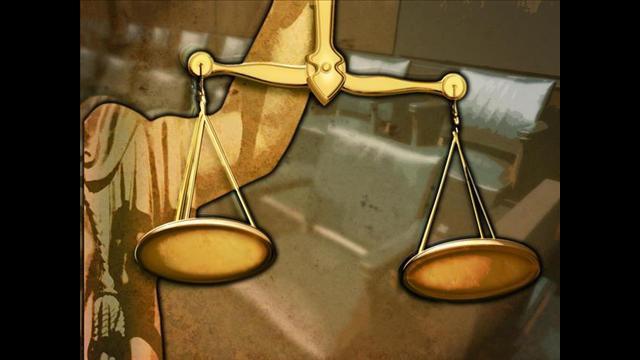Can Church Confessions Be Used in Court?
By Bob Brenzing
(DETROIT FREE PRESS) - Michigan Court of Appeals judges will hear arguments Thursday on a case that could have serious repercussions for church members: Can what you confess to your pastor be used against you in a court of law? A three-judge panel of the court is being asked to decide whether a Baptist pastor in Belleville violated Michigan's priest-penitent privilege by testifying against a church member in a rape case. "This is a very dangerous case because it could have very serious repercussions for religion," the rape suspect's lawyer, Raymond Cassar of Farmington Hills, said Tuesday. "If a pastor is allowed to testify against a member of his church about privileged communications, no one will want to confess their sins to their pastors anymore." Assistant Wayne County Prosecutor Toni Odette argued in court documents that the privilege doesn't apply in this case. "The communication was initiated by the pastor -- not by the defendant -- and was done to ascertain whether the victim was telling the truth, not for the purpose of spiritual guidance," she said. Issue in rape case: What's confidential and what's not It was around 11 p.m. one night in 2009 when Samuel D. Bragg and his mother arrived at Metro Baptist Church in Belleville to be questioned by their pastor about the rape of a 9-year-old girl. Within minutes, court documents say, the Rev. John Vaprezsan got Bragg, then 17, to confess that he had raped a 9-year-old girl during a sleepover at his home in 2007 when he was 15. The girl said Bragg had threatened to kill her if she ever told anyone what he had done. Two years later, after attending a church retreat on purity, the girl confided to her mother, who told Vaprezsan. The pastor interrogated Bragg and gave a statement to Belleville police. Then, Vaprezsan testified against Bragg -- over the objections of Bragg's attorney -- at a preliminary examination last March in 34th District Court in Romulus. Vaprezsan told the Free Press on Tuesday that he couldn't comment on the case. Asked whether he had ever encountered such a situation, he said: "As pastors, we're involved in a lot of situations with families. I really don't consider the repercussions, I just try to help people." What each side says Although a district judge ordered Bragg to stand trial in Wayne County Circuit Court, Judge Cynthia Gray Hathaway tossed Vaprezsan's testimony, saying it violated Michigan's priest-penitent privilege. State law says no priest or pastor shall be required to disclose any confessions made to him or her in their professional capacity. But Wayne County Assistant Prosecutor Teri Odette said in an appellate brief that Vaprezsan's testimony is fair game. Odette argued Bragg's confession wasn't confidential because his mother was there, and it had nothing to do with church discipline or spiritual guidance. She also said Vaprezsan didn't claim a privilege and testified that he had a duty to tell the victim, her family and the police what he had learned. He said it didn't violate Baptist doctrine. Farmington Hills lawyer Raymond Cassar, who represents Bragg, disagreed. He said Vaprezsan had been Bragg's pastor since he was 5 and that Bragg, along with his mother, assumed that they were being summoned to the church office for counseling. Cassar said the meeting was conducted in a spiritual manner and the pastor, Bragg and his mother concluded by praying together. Bragg is free on bond, pending trial on a charge of first-degree criminal sexual conduct involving a child younger than 13. The charge carries a mandatory 25-year prison sentence. Bragg and his mother deny that he confessed to Vaprezsan. Cassar also said the girl, who testified at the preliminary examination, described the assault as a molestation and not rape. Cassar's associate, Amanda Paletz, said a lot will be riding on the appeals court decision: "This has the potential for turning men and women of the cloth into agents of the police." Not a clear-cut matter A legal expert predicted Cassar likely would win the appeal. "Under these facts, the Court of Appeals probably will affirm the circuit judge's ruling," said Lawrence Dubin, a University of Detroit Mercy Law School professor. "The defendant was asked to have a private and confidential communication with his pastor," Dubin said. "After hearing the confession, the pastor engaged in prayer with the defendant and his mother. He also admitted the confession was given in confidence and that he couldn't tell even his wife or members of his congregation." The issue of religious confessions is a sensitive one for local clergy. On the one hand, they want to honor confidentiality with the faithful; on the other hand, they feel they have a responsibility for the welfare of others, especially victims of crime. Rabbi Jason Miller, of Kosher Michigan in West Bloomfield, said he tries to honor the confidentiality of people who confess to him. But "if information that is confided in me would lead to serious harm of another human being, I would feel compelled to tell the authorities," he said. "That would include situations of abuse." Msgr. Ricardo Bass, pastor at St. Hubert Catholic Church in Harrison Township and a former chief judge for canon law for the Archdiocese of Detroit, said the priest-penitent privilege is inviolate in the Catholic Church. He said two church canons forbid priests from using knowledge acquired from a confession to the detriment of a penitent. "This is an absolute, no question about it," he said. Cassar said little case law exists on the priest-penitent privilege in Michigan, and no matter how things turn out at the Court of Appeals, the case likely will be appealed to the state Supreme Court. The case will be heard Thursday by appeals Judges Elizabeth Gleicher, Patrick Meter and Pat Donofrio.
|
.
Any original material on these pages is copyright © BishopAccountability.org 2004. Reproduce freely with attribution.
